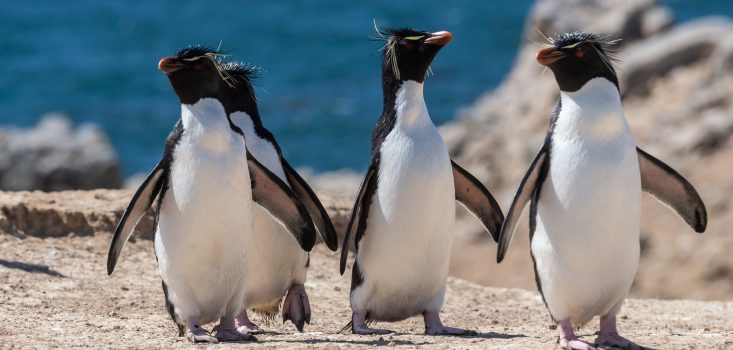The Tristan da Cunha Island Council and the British government have announced plans to preserve the unique biodiversity surrounding the world’s most remote inhabited archipelago.
On Friday, 13th November 2020 the Tristan da Cunha Island Council committed to the designation of most of the archipelago’s exclusive economic zone (EEZ) as a marine protection zone. The move will fully safeguard an area that spans more than 687,000 square kilometres (265,000 square miles), about 91% of the waters of the remote South Atlantic Ocean island chain, and create the fourth-largest fully protected marine reserve on the planet. Final action on the necessary legislation is expected in 2021.
Industrial Extraction Prohibited
With the new protected zone, which is nearly three times larger than the U.K., Tristan da Cunha will prohibit industrial extraction activities throughout most of the EEZ to safeguard a rich and diverse ecosystem.
A long-term Management Initiative
To help the community actively manage these newly protected waters, the Pew Bertarelli Ocean Legacy Project is committed to supporting long-term implementation projects. These initiatives include developing a partnership with Global Fishing Watch to support the planning and management of effective marine protections by harnessing near real-time, open-source and interactive data to evaluate ocean conditions, marine biology, and human activity, such as fishing.
Dona Bertarelli, co-chair of the Bertarelli Foundation and Special Adviser for the Blue Economy to the United Nations Conference on Trade and Development, commented:
“This ambitious decision by the Tristan da Cunha Island Council to protect the archipelago’s waters is a great example of local leadership that has a global impact. Today’s announcement enhances the resilience of the Tristan da Cunha community, whilst making a significant contribution towards the science-based global target to protect 30% of the ocean by 2030. The Pew Bertarelli Ocean Legacy Project looks forward to partnering with the Tristan Island Council to support the long-term implementation of the new protections for years to come.”




